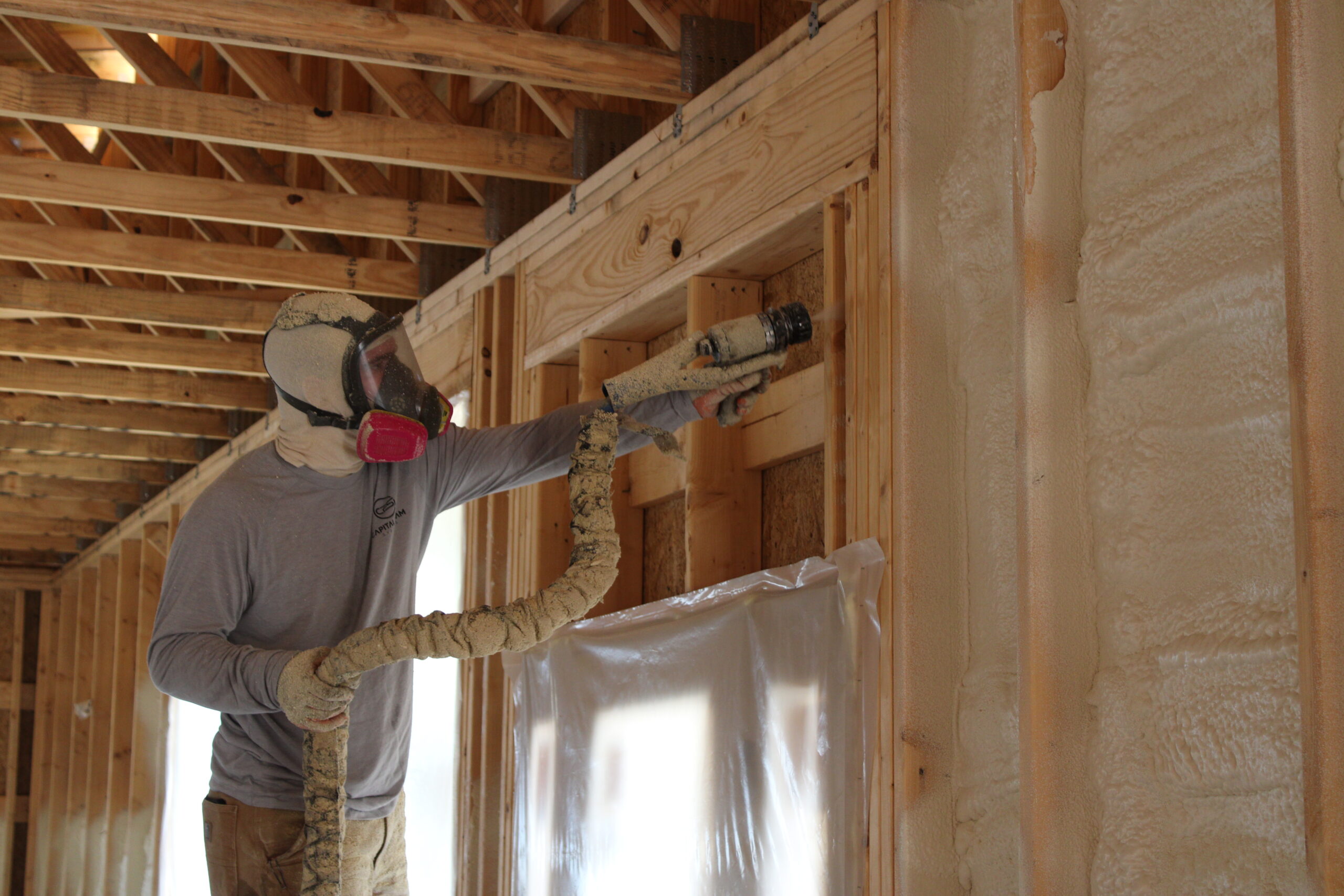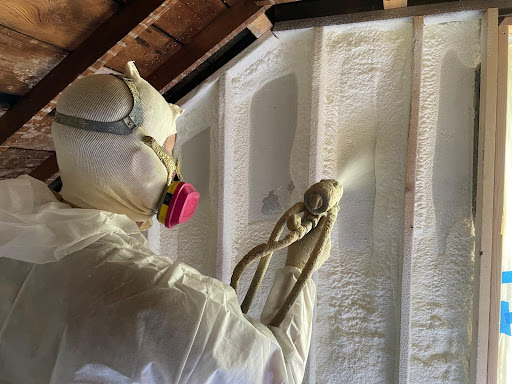Whether you want to insulate your home or commercial building, spray foam insulation is a popular choice for anyone looking to improve energy efficiency and increase comfort. However, just like any building material, spray foam has its own set of advantages and disadvantages.
In this blog article, we’ll explore the pros and cons of spray foam insulation, a popular choice for enhancing insulation performance in residential and commercial spaces alike.
The Advantages of Spray Foam Insulation
1. Superior Insulation
Spray foam insulation provides excellent thermal insulation by sealing gaps, cracks, and voids in walls, ceilings, and floors. This tight seal prevents air leakage, reducing heat loss, lowering energy bills, and improving energy efficiency throughout the year.
2. Versatile Application
Whether you’re insulating walls, roofs, attics, or crawl spaces, spray foam can adapt to various surfaces and configurations. Its expanding properties allow it to fill even the most challenging spaces, ensuring comprehensive coverage and maximum insulation effectiveness.
3. Enhanced Indoor Air Quality
By sealing out air leaks, spray foam insulation helps maintain consistent indoor temperatures while keeping allergens, pollutants, and outdoor contaminants at bay. This promotes healthier indoor air quality, benefiting the well-being of occupants in both residential and commercial settings.
4. Long-Term Durability
With proper installation and maintenance, spray foam insulation can provide lasting performance and protection. Its resistance to moisture, pests, and structural deterioration ensures peace of mind for homeowners and commercial property owners alike, potentially extending the lifespan of the building.
The Disadvantages of Spray Foam Insulation
1. Cost
While spray foam insulation offers long-term energy savings and benefits, it typically requires a higher upfront investment compared to traditional insulation materials. Homeowners and commercial property owners should weigh the initial cost against the potential long-term savings and benefits.
2. Installation Complexity
Achieving optimal results with spray foam insulation necessitates professional expertise and specialized equipment. While this ensures proper application and insulation performance, it adds to the overall cost and may require scheduling installation around existing occupancy or business operations.
3. Health and Safety Concerns
During installation, spray foam insulation emits volatile organic compounds (VOCs) and isocyanates, which can pose health risks if not handled with care. Homeowners and commercial building owners should ensure proper ventilation and follow safety precautions during and after installation to minimize exposure risks.
The Pros and Cons of Spray Foam Insulation: Should You Choose Spray Foam?
Spray foam insulation offers numerous benefits for both homeowners and commercial building owners, including superior insulation performance, versatility, enhanced indoor air quality, and long-term durability. However, it’s essential to weigh these advantages against the upfront cost, installation complexity, and health and safety considerations.
The Capital Spray Foam Difference
Still not sure if spray foam insulation is right for you? At Capital Foam Systems, we help you determine whether spray foam insulation is the best choice for your property’s insulation needs and budget.
Our team of qualified spray foam experts are ready to handle all your spray foam insulation needs, providing professional advice and superior installation services. Contact us to get your free quote today!







